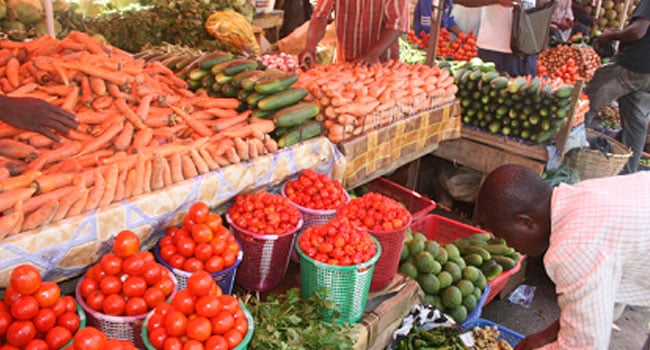The federal government has assured Nigerians that measures are in place to forestall a food crisis in the country.
The International Monetary Fund (IMF) had predicted that food prices would continue to increase in Nigeria in 2023 due to high fertiliser prices and recent flooding events which have affected production.
IMF’s projection was contained in its 2022 article IV consultation concluding statement after an official staff visit to Nigeria.
“The effects of recent flooding and high fertiliser prices could become more entrenched, impacting negatively both agricultural production and food prices in 2023,” the report had stated.
Advertisement
“Similarly, further volatility in the parallel market exchange rate and continued dependence on central bank financing of the budget deficit could exacerbate price pressures.”
But in an interview with The Punch, Joel Oruche, director of information in the ministry of agriculture, advised citizens to disregard the IMF projection.
He said the agriculture ministry was implementing various interventions to avert such a crisis.
Advertisement
“People shouldn’t be afraid of any food crisis. The minister has explained this and so people should not express fear about their (IMF) projections,” Oruche said.
Meanwhile, the federal ministry of agriculture and rural development (FMARD), had in a document on the long/short term measures to ameliorate the disruptions of food production and supply in Nigeria, said it was implementing various interventions to mitigate the anticipated disruptions occasioned by the recent floods.
The ministry said it had distributed assorted food commodities from the federal government strategic food reserve to the vulnerable and flood victims through the federal ministry of humanitarian affairs, disaster management and social development.
“Distribution of early maturing seeds (wheat, rice, maize, sorghum, cassava cuttings), fertilisers, agro-chemicals and agro-equipment to affected crop farmers across the country,” it added.
Advertisement
“Distribution of subsidised agricultural inputs (fertilisers, certified seeds and agrochemicals) to affected wheat, rice and maize farmers for dry season farming under agricultural transformation agenda phase 1 and public based operations across the 36 states and Abuja.”
FMARD said brooded broilers for restocking of affected smallholder poultry farms had also been distributed nationwide, adding that the mass vaccination of animals to prevent incidents of disease outbreaks that usually occurred after flood disasters was currently ongoing.
The ministry added that it was collaborating with the interior ministry to improve security on farms through the deployment of agro-rangers across the country.
It noted that the government had approved a five-year tax break as an incentive to encourage private investments in the agricultural sector and increased food production, processing and marketing.
Advertisement
“Restocking of the strategic food reserve with 200,000 metric tonnes of assorted food commodities,” it said.
“There is the engagement in land preparation in collaboration with the state and local governments to open more land and take advantage of residual moisture for dry season farming.”
Advertisement
Add a comment






